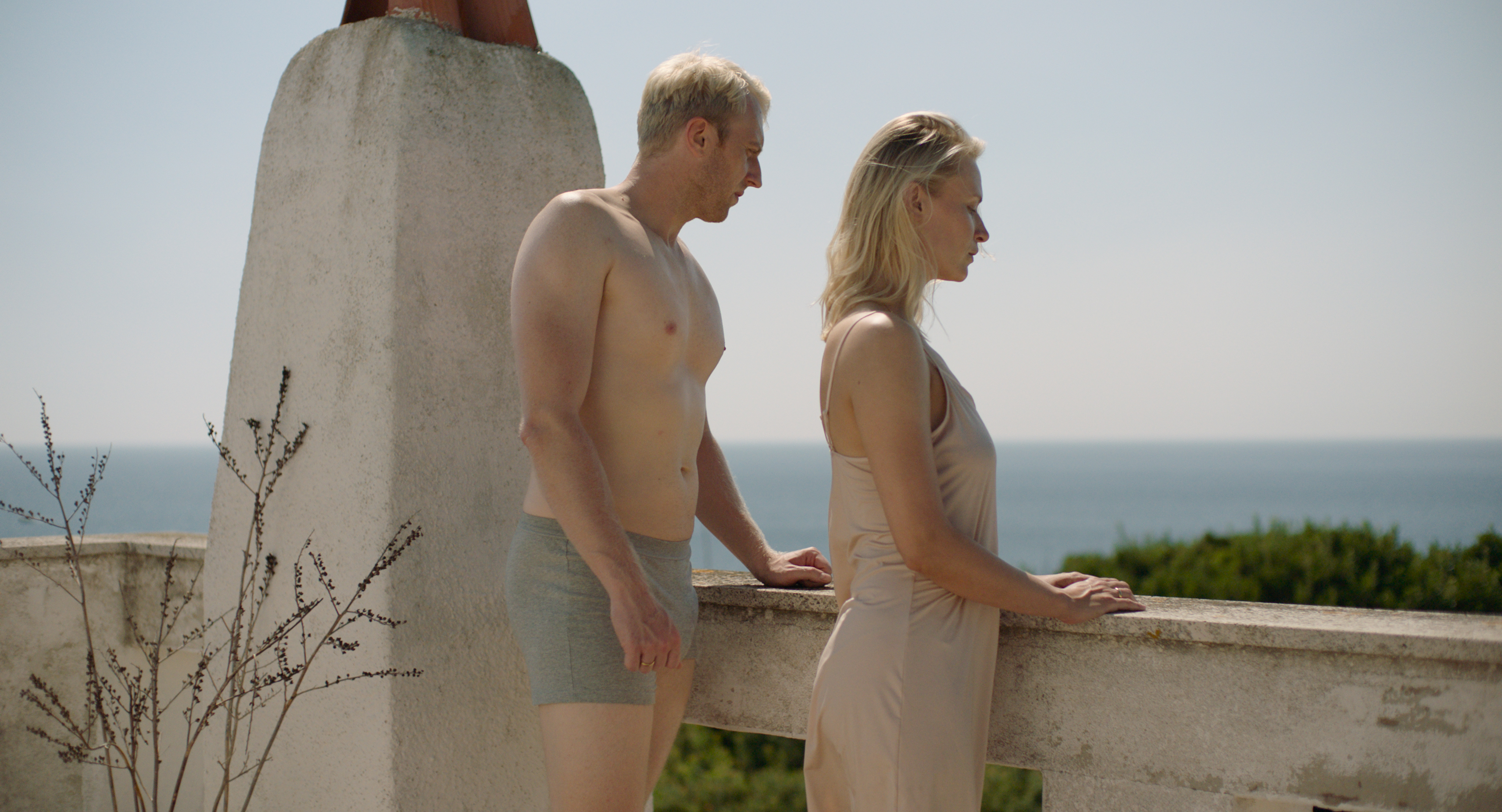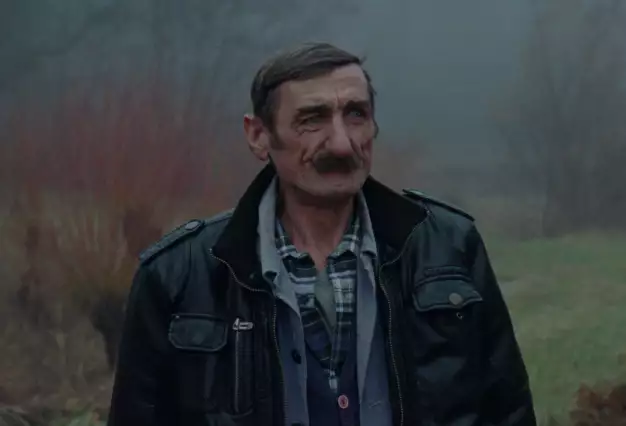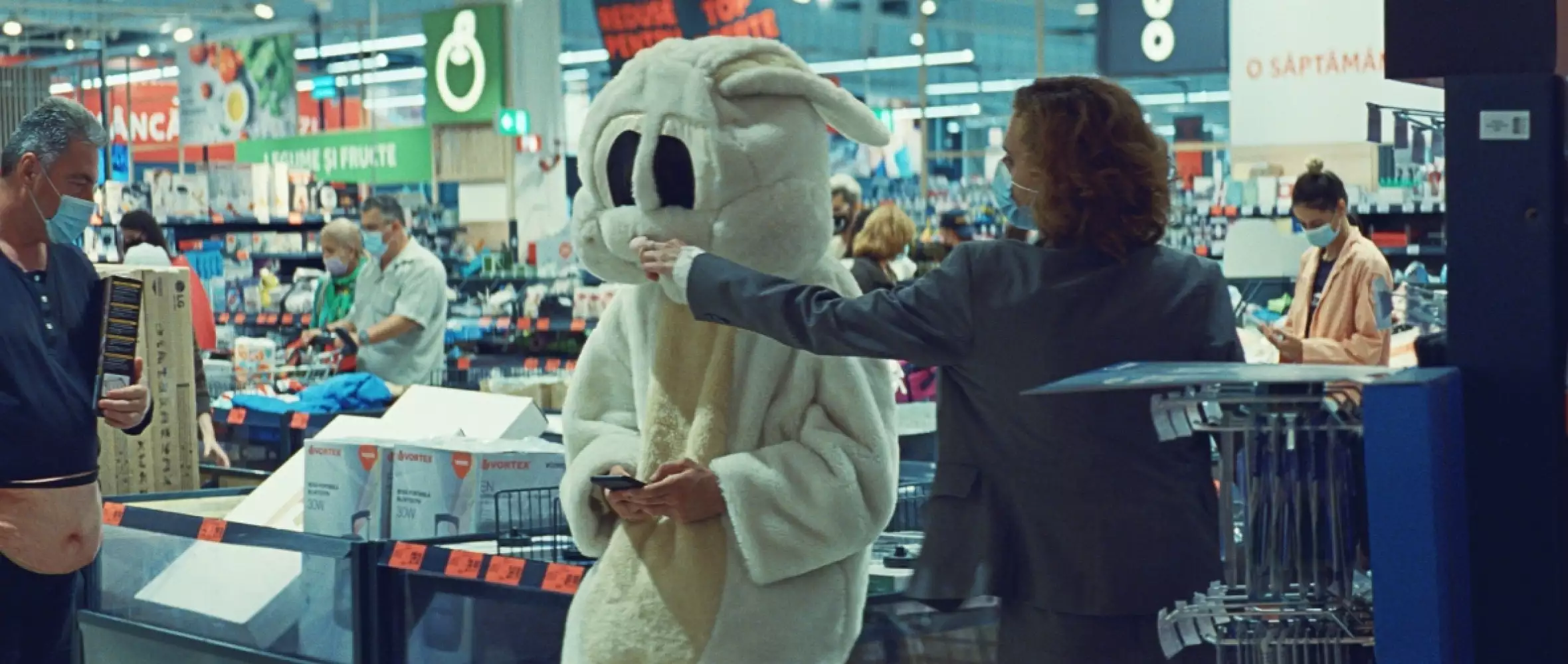
24 November 2021
Transcending borders: Czech influence flourishing in world cinema
Transcending borders: Czech influence flourishing in world cinema

Czech minority coproductions are in full bloom this fall on the international festival circuit. When it comes to ambitious, thought-provoking independent cinema, Czech producers and film professionals have become instrumental partners even beyond the traditional territory of Central and Eastern Europe.
Article by Martin Kudláč for CZECH FILM magazine / Fall 2021
Despite the ongoing pandemic, Czech cinema got off to a great start in 2021 as Radu Jude’s latest provocative and inventive dramedy Bad Luck Banging, or Loony Porn netted the main prize at the Berlinale International Film Festival.
The esteemed Romanian auteur has built a strong reputation for himself, reaping awards on the international circuit. His latest was coproduced by veteran Czech independent producer Jiří Konečný of endorfilm, but this was not the pair’s first collaboration. Konečný, known for building creative partnerships with a handful of filmmakers, also coproduced Jude’s previous award-winning works — Aferim! and “I Do Not Care If We Go Down in History as Barbarians” — the latter snagging the Crystal Globe for Best Film at the 2018 Karlovy Vary International Film Festival. The Czech Film Fund has supported all of Jude’s projects so far as minority coproductions.

Jude’s win at the Berlinale was not the first time Germany’s most prestigious film gathering was a site of great triumph for the Czech film industry. In 2018, rising Romanian filmmaker Adina Pintilie took home the coveted main prize for her boundary-pushing Touch Me Not, coproduced by the Prague-based PINK. Radovan Síbrt, PINK’s cofounder, appreciated the braveness of the Czech Film Fund in supporting the project as a minority coproduction. In 2017, Polish veteran director Agnieszka Holland won the Silver Bear for her eco-thriller Spoor, coproduced by the young but fast-growing nutprodukce. And in 2012, A Royal Affair, by Danish director Nikolaj Arcel, premiered in the Berlinale’s main competition, netting two Silver Bears, with production company Sirena Film as Czech coproducer.
Now, in 2021, the outpouring of Czech coproductions on the international film festival circuit has continued in Cannes, Locarno, Copenhagen, and Annecy. The latter, the most important animation film festival in France, which also makes it relevant for animation globally, introduced the Czech majority coproductions My Sunny Maad and Even Mice Belongs to Heaven, along with the minority coproduction The Crossing, backed by the experienced production outfit MAUR film. Producer Martin Vandas of MAUR film goes so far as to say: “Coproductions are a perfectly natural and almost essential part of the production strategy and work for animated films.” He adds that coproductions are a way to build lasting and rewarding partnerships. “Our partners come back to us because they’ve found out for themselves that we’re professionals, we’re dependable, and we work with is professionals, too.” Vandas said that serving as a minority coproducer on international films has enabled the company to find partners and coproducers for its own projects, including the latest by Oscar-nominated director and animator Daria Kashcheeva, Electra: A Poem.
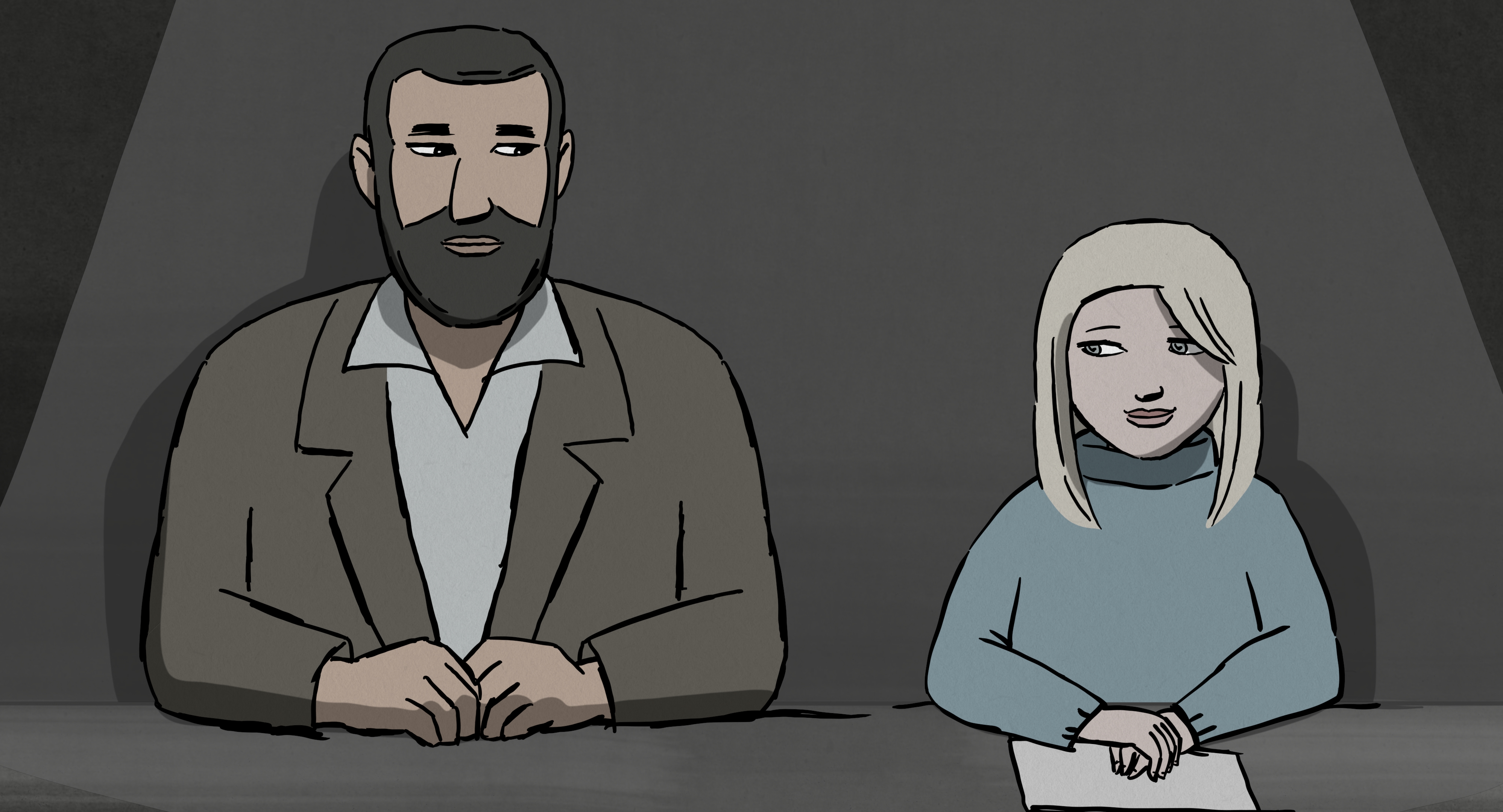
Fall deluge
As Oscar season gets underway, Czech minority coproductions also have a noteworthy presence at fall film festivals. Three have already taken a bow in the official selection of the 78th Venice International Film Festival. The Czech Producer on the Move 2020, Mikuláš Novotný of Prague-based Background Films served as coproducer on Leave No Traces by rising Polish directing talent Jan P. Matuszyński. His film, a docudrama based on an incident in 1983 when a high school student died after a severe beating by police in Warsaw, had its world premiere in the main competition at Venice. In addition to Background Films, Magiclab and Czech Television coproduced the film from the Czech side, with the Czech Film Fund also lending support to the project. New Europe Film Sales is handling world rights and has already sold the film to a variety of territories. Shortly after its premiere, Leave No Traces was selected as Poland’s Oscars entry in the International Feature Film category at the 94th Academy Awards.
Meanwhile, the Venice Film Festival’s Orizzonti section, showcasing the latest aesthetic and expressive trends in world cinema, welcomed the latest work by Slovak award-winning producer and documentary director Peter Kerekes, 107 Mothers, a compelling exploration of motherhood behind bars. This Slovak-Czech-Ukrainian coproduction, which marks Kerekes’s feature debut, follows a woman who ends up in a correctional facility in Ukraine after committing a crime of passion. Jiří Konečný coproduced 107 Mothers, honored with Best Screenplay in the Orrizonti competition, along with another Czech production outfit, Hypermarket Film.
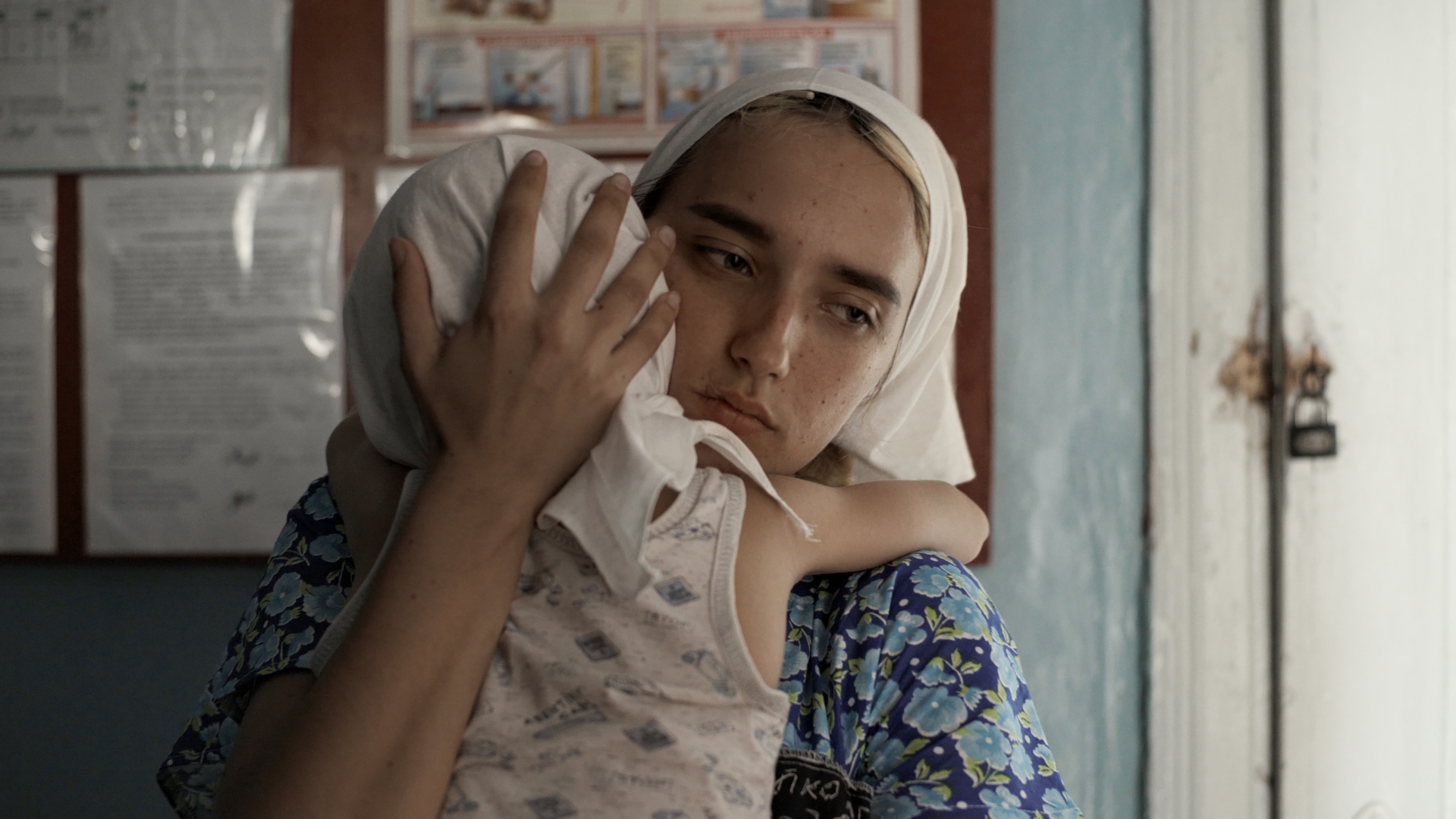
Also taking a bow in the Orizzonti section was the Romanian crime-drama Miracle, the third feature film written and directed by Bogdan George Apetri, produced by Viktor Schwarcz of Cineart TV Prague. The film revolves around the sudden disappearance of a young nun and a police detective who attempts to solve the crime and find the truth behind her mysterious actions. Miracle is part two of a trilogy set in the director’s hometown, in the Piatra Crailui Mountains. Schwarcz also worked on the first installment, Unidentified (2020), and both projects won support from the Czech Film Fund. Both of Apetri’s films screened at the CinEast Festival in Luxembourg, with Miracle making a further appearance in the Warsaw Film Festival, where it took home the Special Jury Prize, and the Zurich Film Festival. International sales are handled by Memento International and the film has been sold in North America, France, Greece, and Portugal.
Federica Di Giacomo’s Il Palazzo concludes the string of premieres of Czech minority coproductions on the Lido. Di Giacomo, who previously took home the Orrizonti Award in 2016 for Best Feature Film in the Venice festival, returned this year with her latest work, which premiered in the independent sidebar, Giornate degli Autori. The Palace referred to in the title of her film is a hideout for a group of friends working on artistic projects. When their leader dies an untimely death, he leaves behind hours of footage, facing them with the question of who, if anyone, should finish his film. Jan Macola of Mimesis Film coproduced the project for the Czech side.
Czech contributions were also on display across the pond in the Toronto International Film Festival, the most important event for the North American film market, including Polish filmmaker Aga Woszczyńska’s debut, the Polish-Italian-Czech coproduction Silent Land, about the disintegrating relationship of a Polish couple on vacation in Italy. Post-production on the film was carried out in the Czech Republic by the studio i/o post, which invested both services and facilities. Silent Land landed French and UK distribution deals in Toronto.
“Thanks to several years of work, a good reputation gained in previous coproduction projects, and support from the Czech Film Fund, we were able to be part of this exceptional project,” says coproducer Jordi Niubo of i/o post. “Equally important were the beautiful human ties that emerged on both the creative and the production teams, since those are a major requirement for cooperation on the upcoming projects that are already in the works.”
Already Niubo has spearheaded a collaboration resulting in the first ever Iranian-Czech project, A Very Ordinary Citizen, by Majid Barzegar, followed by Absence, shot in Prague and starring Czech actors. Recently, Niubo has worked on projects ranging from Romania to Poland to Italy to Kazakhstan, and he is now gearing up for minority coproductions with Spain and Latvia.
In addition to Silent Land, Niubo is also behind a Czech coproduction that appeared at the San Sebastian Film Festival alongside 107 Mothers and Bad Luck Banging, or Loony Porn: actor-turned-director Emanuel Pârvu’s sophomore drama Marocco, which screened in the New Directors competition. Written by Pârvu and Alexandru Popa, the story shows us the teenage Magda offering her expensive necklace to a sick child in the hospital. When her father believes she is lying and he is proven wrong, their relationship is broken and past decisions yield irreversible consequences.
“Collaboration on international coproductions opens up opportunities not only for our company but also for other filmmakers, since when they become part of these projects they broaden their horizons while making Czech cinema visible in a global context thanks to the appearance of these films in international festivals,” Niubo says.
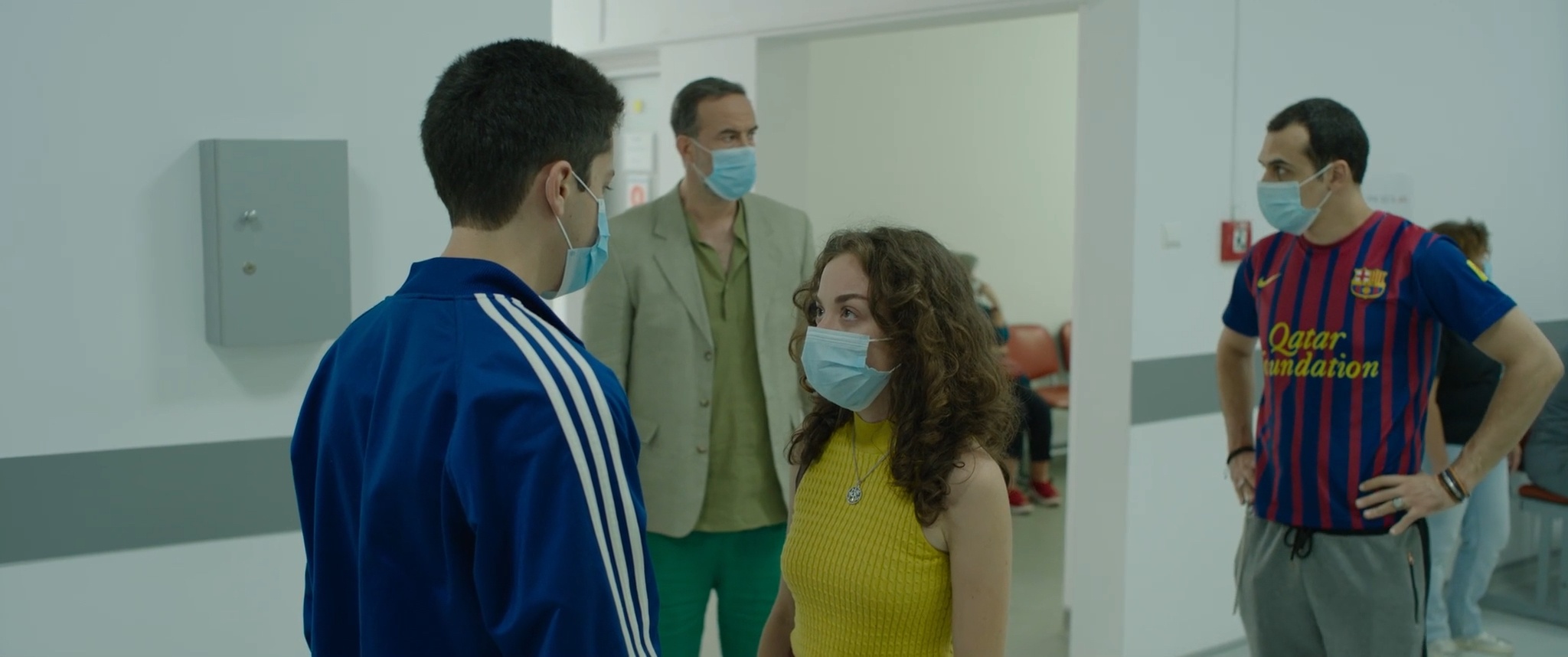
Continuous expansion of Czech cinema
With the Czech Republic a hot spot for production of U.S. blockbusters and big-budget series by global streamers, Czech film professionals continue to make creative contributions to international projects in independent cinema. The tireless work of domestic producers and systematic support by the Czech Film Fund have led to valuable partnerships across the international film industry.
Czech production pipelines are loaded with a roster of ambitious, inventive, and innovative projects with Czechs as minority coproducers. Slovakia remains the Czech film industry’s most frequent partner. Aerofilms is behind Marek Šulík’s time-lapse documentary President, which follows Slovakia’s first woman president, Zuzana Čaputová, through her initial term. The Czech Film Fund supported the project, citing its strong potential for wide distribution. MAUR film is continuing its creative collaboration with Slovak animators Ivana Šebestová and Katarína Kerekesová on the series Mimi & Lisa. After coproducing the feature-length animation Mimi & Lisa: Christmas Light Mystery, now MAUR film is backing the sequel, Mimi & Lisa: The Garden. Paprika Studios boarded Slovak director György Kristóf’s innovative project The Bunker, a dystopian thriller about power and freedom narrated through dance and motion. Romanian actress Judith State, from Cristi Puiu’s Sieranavada, stars, while Gergely Pálos, DoP on Roy Andersson’s last two films, is lensing the idiosyncratic work.
Following the docudrama Oroslan, which premiered at Locarno in 2019 and travelled the festival circuit, the Czech Republic is now involved in another project from Slovenia, Father Figure. This latest work by theater and film director Nejc Gazvoda is coproduced by Evolution Films, which previously worked with Slovenian producer Aleš Pavlin on Šiška Deluxe by Jan Cvitkovič in 2016. Gazvoda´s social drama revolves around the rise of extremism due to unsettled questions of difference and the frustrations that spring from hidden forms of violence in contemporary society.
Czech producer Radim Procházka of Kuli Film is onboard for the upcoming directing effort by Hungarian Gyula Nemes, The Cloud Hunters, billed as a Central European variation on Gabriel García Márquez’s One Hundred Years of Solitude, with the story taking place across different moments in 20th-century Czechoslovakia and present-day Czech Republic. Procházka is also signed on to Latvian Dāvis Sīmanis’s documentary Frankenstein 2.0, oscillating between existential road movie and humorous sci-fi as it explores the question of immortality.
Among the most eagerly anticipated films with Czech involvement are projects from France, Poland, and Israel: Christian Paigneau’s documentary A Czechoslovak Fairy Tale, about the Czechoslovak New Wave; Olga Chajdas’s intimate story of motherhood, Imago, set amid the Polish alternative art scene of the ’80s; and America, by Ofir Raul Grazier (The Cakemaker), which tells the story of a swimming coach from Chicago who after 10 years’ absence returns to Israel to visit a childhood friend and the friend´s fiancée, setting in motion a chain of events that will change everyone’s lives.
Finally, the production outfit Negativ stands behind another exciting project breaking new ground in Israel, Dead Language, a love story by husband-and-wife duo Mihal Brezis and Oded Binnun, whose previous short film, Aya, was nominated for an Oscar.


